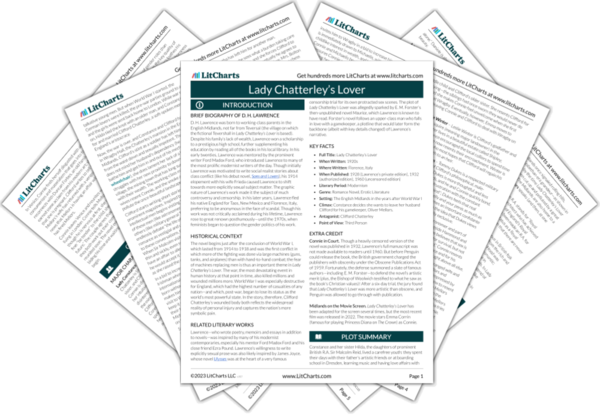Marcel Proust, a French writer and contemporary of Clifford’s, is not at all the author Connie makes him out to be. In fact, Proust prioritized the use of stream of consciousness in writing, a focus on the present moment that might actually appeal to Connie and Mellors. But at this moment in her life, any literature seems “dead” to Connie, who wants only physical intimacy.
